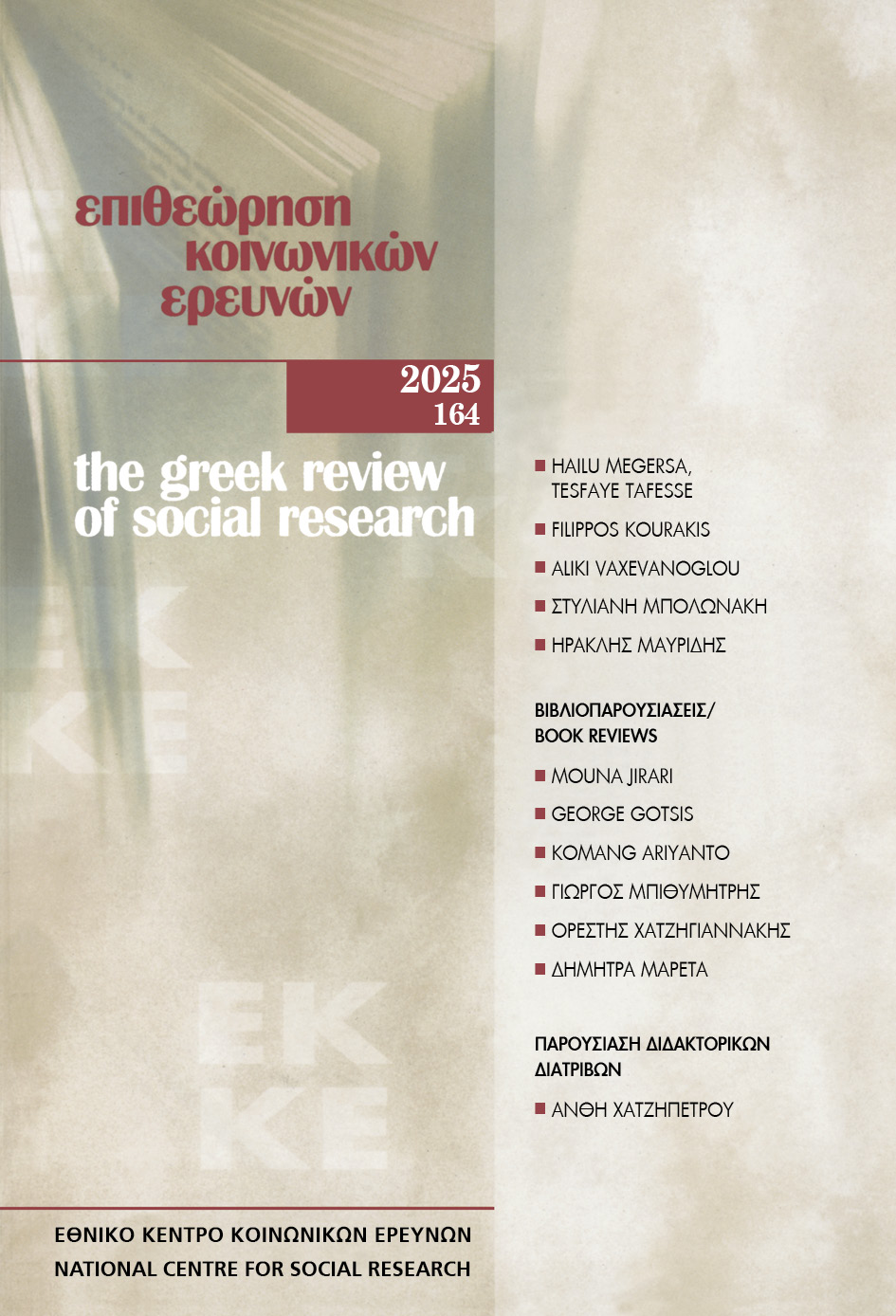Forms of ideological hegemony: the example of “informal labour” and the case of Greece

Περίληψη
Η έννοια της «άτυπης εργασίας» χρησιμοποιείται ευρύτατα στις κοινωνικές επιστήμες και επηρεάζει την αντίληψή μας για τον κοινωνικό κόσμο. Πρόκειται όμως για έννοια ουδέτερη και αμερόληπτη; Η παρούσα μελέτη βασίζεται σε εκτεταμένα και ανεκμετάλλευτα αρχεία της Διεθνούς Οργάνωσης Εργασίας που καθιέρωσε την έννοια της «άτυπης εργασίας»· σκιαγραφεί το ευρύτερο ιστορικό πλαίσιο γένεσης του όρου, τις διαδικασίες διάδοσής του και αναδεικνύει την κύρια ιδεολογική εμμονή της εποχής: την επιταγή οικονομικής ανάπτυξης μέσω μαζικής εκβιομηχάνισης. Επικεντρωμένη στην περίπτωση της Ελλάδας, από τις αρχές του 20ού αιώνα έως τη δεκαετία του 1980, η μελέτη αντιπαραθέτει διαρκώς τα πραγματολογικά δεδομένα και την ιδεολογική τους μεθερμήνευση. Η έννοια της «άτυπης εργασίας» αντιμετωπίζεται εδώ ως ένας βασικός δείκτης για την προσέγγιση του σύνθετου φαινομένου που ονομάζεται ιδεολογική ηγεμονία.
Λεπτομέρειες άρθρου
- Πώς να δημιουργήσετε Αναφορές
-
Vaxevanoglou, A. (2025). Forms of ideological hegemony: the example of “informal labour” and the case of Greece. Επιθεώρηση Κοινωνικών Ερευνών, 164, 57–89. https://doi.org/10.12681/grsr.40198
- Τεύχος
- 2025: 164
- Ενότητα
- Άρθρα

Αυτή η εργασία είναι αδειοδοτημένη υπό το CC Αναφορά Δημιουργού – Μη Εμπορική Χρήση 4.0.
Οι συγγραφείς των άρθρων που δημοσιεύονται στην Επιθεώρηση Κοινωνικών Ερευνών διατηρούν τα δικαιώματα πνευματικής ιδιοκτησίας επί των άρθρων τους, δίνοντας στο περιοδικό το δικαίωμα της πρώτης δημοσίευσης. Άρθρα που δημοσιεύονται στην Επιθεώρηση Κοινωνικών Ερευνών διατίθενται με άδεια Creative Commons 4.0 και σύμφωνα με την άδεια μπορούν να χρησιμοποιούνται ελεύθερα, με αναφορά στο/στη συγγραφέα και στην πρώτη δημοσίευση για μη κερδοσκοπικούς σκοπούς.
Το Εθνικό Κέντρο Κοινωνικών Ερευνών διατηρεί το δικαίωμα να δημοσιεύει, να αναπαραγάγει, να παρουσιάζει στο κοινό, να διανέμει και χρησιμοποιεί άρθρα που δημοσιεύονται στην Επιθεώρηση Κοινωνικών Ερευνών σε οποιοδήποτε μέσο και μορφή είτε μεμονωμένα είτε ως μέρη συλλογικών έργων, για όλο τον χρόνο διάρκειας προστασίας της πνευματικής ιδιοκτησίας και για όλες τις χώρες του κόσμου. Αυτό περιλαμβάνει ενδεικτικά και όχι αποκλειστικά το δικαίωμα δημοσίευσης των άρθρων σε τεύχη της Επιθεώρησης Κοινωνικών Ερευνών, αναπαραγωγής και διανομής μεμονωμένων αντιγράφων των άρθρων, αναπαραγωγής ολόκληρων των άρθρων σε άλλη έκδοση του Εθνικού Κέντρου Κοινωνικών Ερευνών, καθώς και αναπαραγωγής και διανομής των άρθρων ή περίληψης αυτών με χρήση πληροφορικού συστήματος αποθετηρίου.


